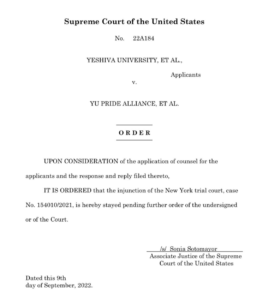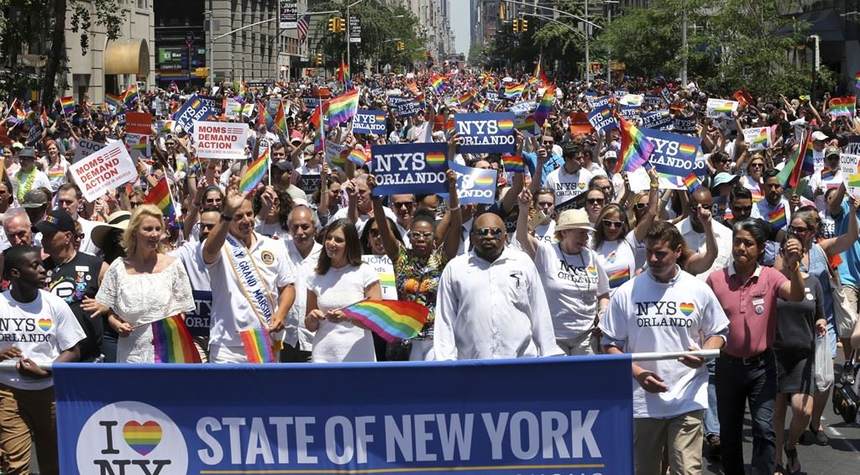A temporary victory was achieved by the US Supreme Court for a Jewish university that had been under attack by the alphabet people.
The oldest Jewish university in America is Yeshiva University, Manhattan. It is open to all faiths and offers degrees in many disciplines.
Yeshiva University is inclusive but requires that all students adhere to certain orthodox Jewish practices, such as Shabbat and dietary restrictions.
My former colleague used to say, “You will be made to love.” A small group of Yeshiva alumni and students gathered together in 2020 to subdue the leadership at Yeshiva University. They demanded it is approved as a “Pride Alliance club.” This would permit the club to use university facilities to groom recruitment and meet. They sued Yeshiva after they refused to sanction a club that was anti-Judaism and Christianity. The LGBTQIA2S+ plaintiffs used New York’s “public accommodations law” to sue Yeshiva for failing to accept whatever strange sexual practices they had in mind. Surprisingly, the alphabet won.
Yeshiva was unsuccessful at the lower court level. The trial judge was concerned with whether the University qualifies as a religious organization within the New York City Human Rights Law. This public accommodation regulation prohibits discrimination based on sexual orientation. Yeshiva claimed that the law exempts some religious corporations.
However, the court observed that the university was considered an “educational institution” according to an amendment to its charter, which was adopted in 1967.
Judge Lynn R. Kotler stated that Yeshiva’s organizational documents don’t expressly state that Yeshiva has a religious purpose.
The school also claimed that NYCHRL violates Yeshiva’s First Amendment Rights. However, the court ruled that the public accommodations law is neutral and applicable to all.
Kotler stated that the law does not target religious practice. Its intent is to discourage discrimination and applies equally to all public accommodations, except those exempted from being distinctly private or religious corporations organized under education, religious, or other laws.
Judge Kotler stated that challengers wanted “equal access” and that Yeshiva “needs not to make a statement endorsing one particular viewpoint.” Kotler also pointed out that Yeshiva’s graduate programs allow LGBTQ groups to attend, which undermines the university’s argument.
The Becket Fund for Religious Liberty represents Yeshiva. It has a strong track record in religious freedom cases. The US Supreme Court granted a stay to the trial court’s order just a few minutes ago.

Justice Sonia Sotomayor granted Friday afternoon a request from Yeshiva University to stop a New York court ruling that required the university to approve a student club called “Pride Alliance”. The university, which operates four campuses in New York City City, had claimed that the state court’s decision would be against its religious beliefs.
After the New York appeals courts refused to suspend the trial court’s decision, Yeshiva appealed to the Supreme Court. The university claimed that the Supreme Court’s ruling was an “unprecedented intrusion into church autonomy.” Noting that clubs have until Sept. 12 to apply for recognition, the university requested that justices act fast.
Sotomayor didn’t explain why she temporarily suspended the ruling of the state trial court in her Friday afternoon order. The last sentence of Sotomayor’s order, which indicates that further action could be taken on the request by the university, suggests that the court might have wanted to act at the very least preliminarily prior to the Sept. 12 deadline for clubs applying for recognition.
The trial judge’s decision was not based on common sense and violated the First Amendment. This ruling also contradicts recent Supreme Court decisions regarding religious liberty and education. It is not clear why she believed her ruling would stand unless the goal was to allow the alphabet club to register, and then make Yeshiva bad when the Supreme Court heard the case. That is, assuming that the New York State appellate courts ever heard the case.
If Joe Biden does not get two additional Supreme Court nominees, it is likely that Yeshiva will win.


